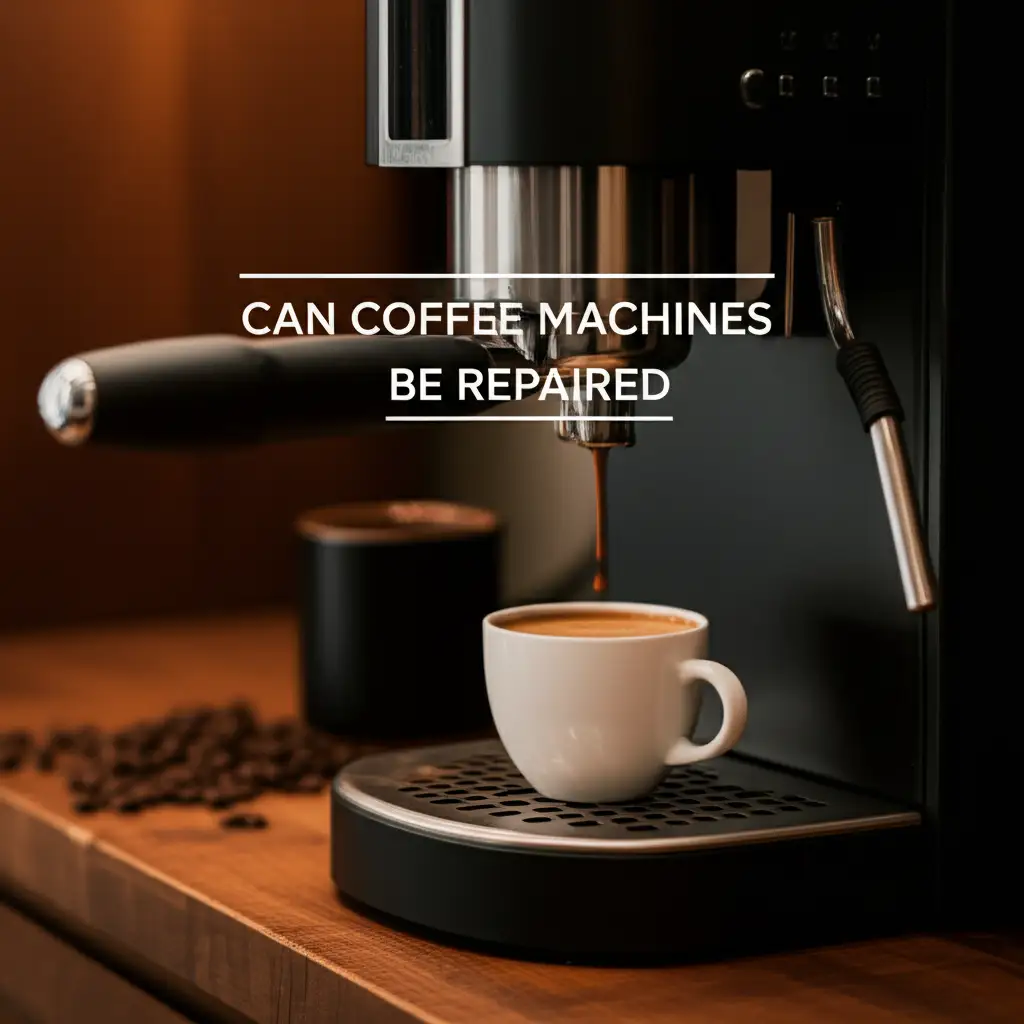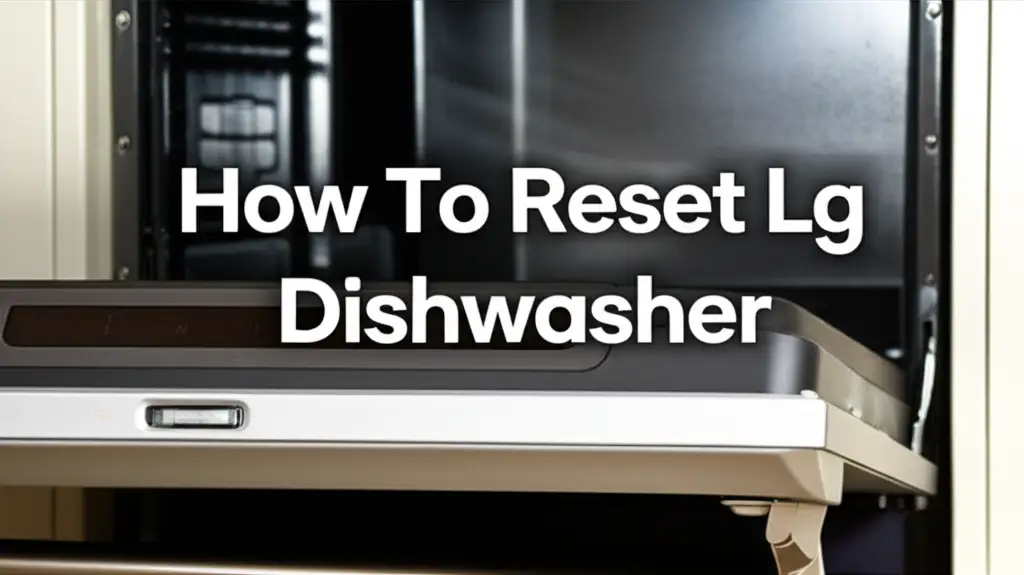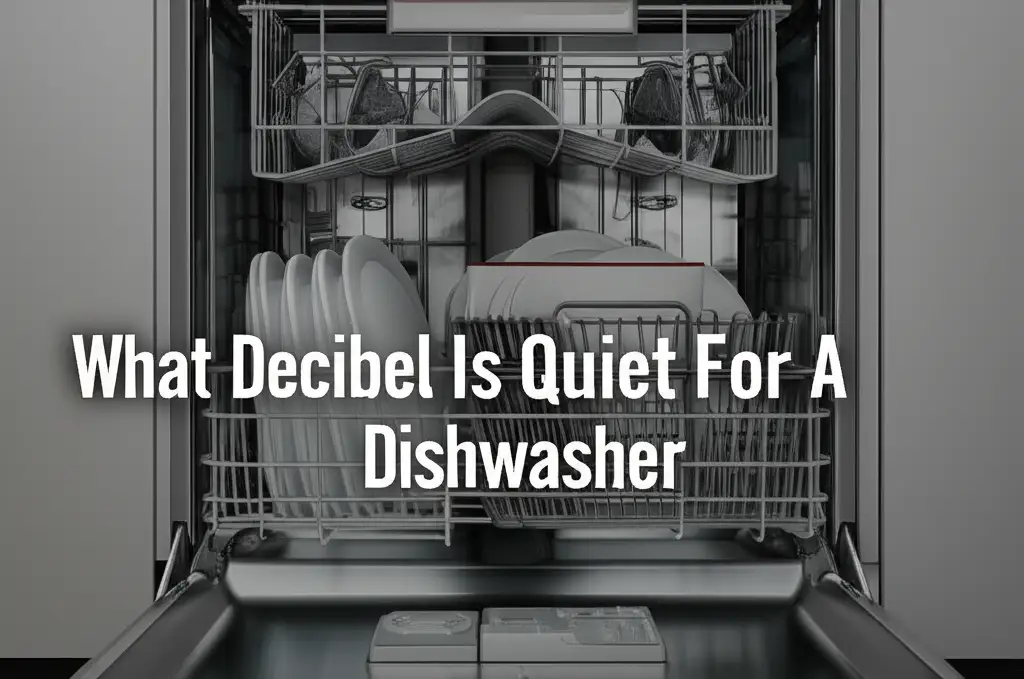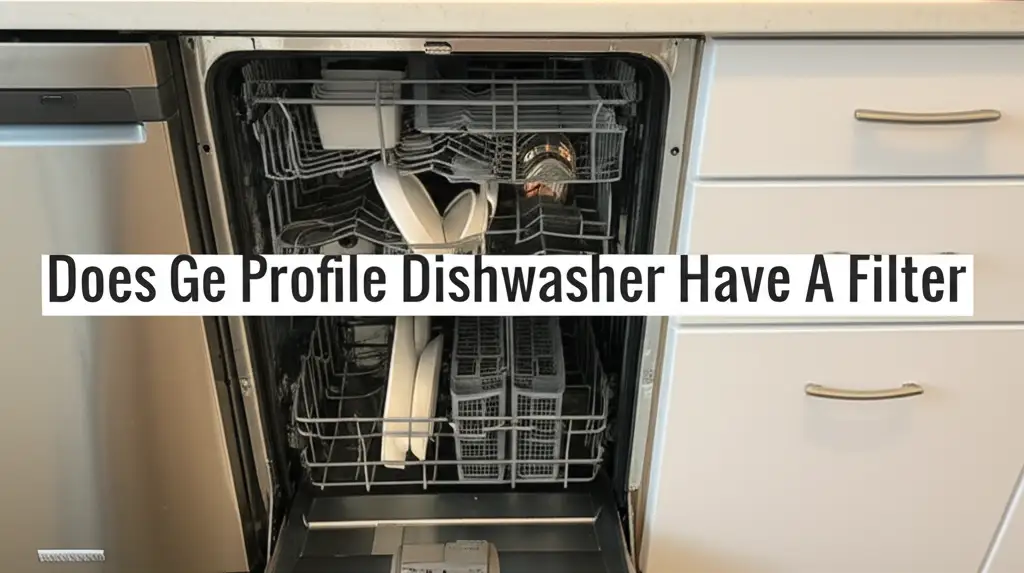· Liora Benning · Home Appliances · 17 min read
Can Coffee Machines Be Repaired

Can Coffee Machines Be Repaired
A morning without coffee feels incomplete for many of us. Your coffee machine sits on the counter, a trusted companion. What happens when it stops working? Do you immediately think about buying a new one? Or can coffee machines be repaired? The good news is, many common coffee machine problems are fixable.
Repairing your coffee machine can save you money. It also helps the environment by reducing electronic waste. I know the frustration when my espresso maker sputters instead of brews. This article explores if you can repair coffee machines. We will discuss common issues, simple DIY fixes, and when to seek professional help. We will also cover how maintenance keeps your machine running.
Takeaway
- Many common coffee machine problems are fixable.
- DIY repairs save money and reduce waste for minor issues.
- Proper maintenance prevents breakdowns and extends machine life.
- Professional repair is often cost-effective for complex issues.
- Assess repair cost versus replacement cost before deciding.
Can coffee machines be repaired?
Yes, many coffee machines can be repaired. The possibility of repair depends on the specific problem, the machine’s age, and the availability of parts. Minor issues like clogs, scale buildup, or a faulty switch are often repairable by yourself or a professional technician. More severe damage, like a broken pump or cracked housing, might require professional intervention.
Understanding Your Coffee Machine: Components and Common Issues
Your coffee machine is a marvel of engineering, brewing your favorite beverage daily. It works by heating water and pushing it through coffee grounds. Different parts perform specific tasks. Understanding these parts helps you identify problems. Knowing the common issues prepares you for a fix.
Most coffee machines, from drip brewers to espresso makers, share basic components. They have a water reservoir, a heating element, and a pump. They also include brewing mechanisms and a dispensing nozzle. Each part must work correctly for the machine to operate. When one part fails, the whole machine may stop. For example, a clogged water filter stops water flow. This means no coffee comes out. Regular cleaning of parts like the water filter is very important. You can find useful guides on specific cleaning, such as how to clean a Breville coffee machine water filter.
Common issues often relate to these core components. For instance, a machine that does not heat water might have a bad heating element. A machine that leaks might have a cracked hose or seal. Grinding noises could mean a problem with the burrs in an automatic machine. Sometimes, the problem is simple. A power cord might be loose. Other times, a small electronic board fails. I always start by checking the power. Then I look for obvious signs of damage.
Identifying the exact part that failed is the first step. Does water flow but not heat? The heating element is the suspect. Does it not turn on at all? Check the power supply and fuses. Is the coffee tasting off or brewing slowly? This often points to mineral buildup. Minerals can clog lines and affect taste. Many users overlook descaling. It is a vital part of coffee machine care. These common problems are often repairable. They do not always mean you need a new machine.
DIY Coffee Machine Repair: When You Can Fix It Yourself
Many coffee machine issues are simple to fix. You do not always need a technician. Saving money is a big benefit of DIY repairs. You also learn how your machine works. I often try to fix things myself before calling for help. This approach gives me a sense of accomplishment. It also helps me understand my appliances better.
You can handle many common problems with basic tools. A screwdriver, a brush, and some descaling solution are often enough. The most frequent issues are clogs and mineral buildup. Hard water leaves deposits inside the machine. These deposits block water flow and reduce heating efficiency. Descaling is an easy DIY task. Many manufacturers provide descaling instructions. You mix a descaling solution with water. Then you run it through the machine. This process dissolves the mineral buildup.
Another common DIY fix involves cleaning specific parts. The brew group in espresso machines can get very dirty. Coffee grounds and oils build up. This affects coffee taste and machine performance. You can usually remove and rinse the brew group. Some drip coffee makers have removable showerheads. Cleaning these improves water distribution. I clean my coffee machine’s brew group every week. This prevents major problems. Sometimes, a coffee spill can make a mess outside the machine. It is important to know how to get coffee spill out of carpet quickly, so the problem does not spread.
Checking for loose connections is another DIY step. Power cords can become loose. Water hoses inside the machine might slip off. Make sure the machine is unplugged before you check anything. Look for visible damage. Sometimes, a simple reset button helps. Many coffee makers have a thermal fuse. This fuse trips to prevent overheating. Pressing a reset button might restart the machine. Always consult your machine’s manual. The manual often has troubleshooting steps. It also shows diagrams of parts. These resources are very helpful for DIY repairs. Fixing a simple problem yourself saves time and money. It also extends the life of your coffee machine.
Troubleshooting Common Coffee Machine Problems
Facing a broken coffee machine can ruin your morning. But many problems have straightforward solutions. I find that a systematic approach works best. First, identify the exact symptom. Is the machine not turning on? Is it leaking? Does it make strange noises? Pinpointing the symptom helps narrow down the cause. This step is critical for effective troubleshooting. Do not rush to assume the worst.
Let’s look at some common issues and their potential fixes.
No Power
If your coffee machine does not turn on, check the power source first. Ensure the power cord is fully plugged into both the wall outlet and the machine. Test the outlet with another appliance to confirm it works. Sometimes, a circuit breaker trips. Check your home’s electrical panel. Some machines have an internal thermal fuse or reset button. Consult your user manual to locate it. A blown fuse often requires professional replacement. However, a simple power issue is usually quick to solve.
Coffee Not Brewing or Slow Brewing
This is a very common issue. Mineral buildup is usually the culprit. Hard water leaves limescale deposits. These deposits clog water lines and the heating element. The solution is descaling. Use a commercial descaling solution or a vinegar-water mix. Run the solution through the machine as per the manufacturer’s instructions. A dirty water filter can also restrict flow. Change or clean the water filter regularly. For instance, knowing how to clean a Breville coffee machine water filter prevents many issues.
Leaking Water
Leaks can come from several places. Check the water reservoir first. Ensure it sits correctly. Look for cracks in the reservoir or drip tray. Hoses inside the machine can become loose or cracked. Seals around the brew group or heating element can also wear out. For small leaks, you might tighten a hose clamp. For cracked components, part replacement is usually needed. A professional can identify hidden leaks. I always check seals for wear and tear.
Weak or Cold Coffee
If your coffee is weak, the grind size might be wrong. Or you might not be using enough coffee. For espresso machines, check the tamper pressure. Cold coffee usually points to a heating element problem. Descaling can sometimes fix this by improving heat transfer. If descaling does not help, the heating element might need replacement. A thermostat could also be faulty. These are internal parts. Replacing them usually requires some technical skill.
Strange Noises
Gurgling or rattling sounds are often normal. They can indicate water moving through the system. Loud grinding sounds from an automatic grinder mean a problem with the burrs. Blockages from foreign objects or worn burrs are common. If the pump makes a loud, strained noise, it might be struggling to pull water. This often indicates a clog. Clean the lines and descale the machine. If the noise persists, the pump itself might be failing.
Remember to always unplug the machine before inspecting internal parts. Your user manual is your best friend for specific troubleshooting steps. It provides diagrams and model-specific advice.
When to Call a Professional for Coffee Machine Repair
While DIY repairs are great for simple issues, some problems are better left to professionals. Knowing when to call an expert saves you time, frustration, and potential further damage to your machine. My rule of thumb is: if it involves electricity beyond the power cord, or if it requires specialized tools, I call a pro. Safety is always important when dealing with appliances. Just as you might call a service for a large appliance like cleaning a refrigerator, a coffee machine can also benefit from expert care. For insights on how general appliance care works, you might look into how to clean the refrigerator.
Complex electrical problems should always be handled by someone trained. If your coffee machine has a short circuit, or if internal wiring is damaged, a professional can diagnose and fix it safely. They have the right testing equipment. They know how to work with live circuits. Attempting these repairs yourself can be dangerous. It could also void your warranty. I prioritize safety above all else.
Replacing major internal components also warrants professional help. These include the heating element, pump, or control board. These parts are often integrated into the machine’s structure. Accessing them requires disassembling the machine. Reassembly must be precise to ensure proper function and prevent leaks. Technicians have experience with specific brands and models. They know the correct way to replace parts. They also have access to genuine replacement parts. This ensures the repair lasts.
If your machine is still under warranty, contact the manufacturer or an authorized service center. Attempting DIY repairs might void your warranty. A professional repair ensures your warranty remains valid. This is important for future issues. They can also offer official documentation of the repair. This can be useful for insurance or resale.
Consider the time and effort involved in a DIY repair. Some issues, like an intermittent problem or a very obscure fault, can take hours to diagnose. A professional can often diagnose the issue faster. They have seen many different failures. Their experience allows for quick and accurate problem identification. Sometimes, paying for expertise saves you more than just money. It saves your valuable time. If you value your time, professional repair is often the smarter choice.
Cost-Benefit Analysis: Repair vs. Replace Your Coffee Machine
When your coffee machine breaks, you face a choice. Should you repair it, or should you replace it? This decision often comes down to money and practical factors. I always consider the overall value before making a choice. Think about the cost of repair versus the cost of a new machine. This helps you make a smart decision.
First, get an estimate for the repair. Call a local appliance repair shop. Describe the problem. Ask for a general idea of the cost. Some shops charge a diagnostic fee. This fee is usually applied to the repair cost if you proceed. Compare this repair estimate to the price of a new machine. A basic drip coffee maker might cost $50-$100. A high-end espresso machine could cost $500 or more. If the repair costs more than half the price of a new, comparable machine, replacement might be better. This rule applies especially to cheaper models.
Consider the age and condition of your current machine. A very old machine might soon have other parts fail. If your machine is already five or more years old, and the repair is costly, a new machine might be a better investment. New models often offer improved features or energy efficiency. However, a well-maintained, high-quality machine can last a decade or more. If it is only a few years old, repair is often the better choice. I often weigh the age of the appliance against the repair cost.
Think about the type of machine you own. Entry-level coffee makers are often designed for replacement. Their parts are sometimes hard to source. Labor costs for repair can exceed their original purchase price. More expensive, higher-quality machines, like many espresso makers, are built to be repaired. Parts are usually available. The cost of repair is often a fraction of the cost of a new, similar model. Repairing a premium machine usually makes economic sense.
The environmental impact also plays a role. Repairing an appliance reduces electronic waste. This is a significant benefit. Every small appliance we keep out of a landfill helps. If sustainability is important to you, repair is often the preferred option. I try to extend the life of my appliances whenever possible. This helps the planet. Ultimately, the decision depends on the specific situation. Compare costs, assess machine age, and consider your environmental values.
Preventative Maintenance: Extending Your Coffee Machine’s Life
Prevention is always better than cure. This holds true for your coffee machine too. Regular maintenance prevents many common issues. It keeps your machine running efficiently. It also extends its lifespan. I follow a simple maintenance routine for my coffee maker. This helps avoid unexpected breakdowns. Keeping your coffee machine clean is just as important as keeping other home appliances clean. For instance, cleaning air vents in your home contributes to overall indoor air quality, much like a clean coffee machine ensures better coffee and longevity. While not directly related to coffee machine repair, general cleanliness practices, like knowing how to clean air vents, highlight the importance of regular upkeep for all household items.
Descaling is perhaps the most critical maintenance task. Hard water leaves mineral deposits, or limescale, inside your machine. This buildup clogs water lines and coats the heating element. It reduces heating efficiency. It can also cause slow brewing or no brewing at all. The frequency of descaling depends on your water hardness and how often you use the machine. For average use with medium-hard water, descaling every 1-3 months is a good guideline. Use a commercial descaling solution or a vinegar-water mix. Always follow the manufacturer’s instructions for descaling your specific model.
Cleaning your machine daily is also important. Wipe down the exterior surfaces after each use. Remove and wash the brew basket, carafe, and any removable parts. Coffee oils and grounds can accumulate. These can become rancid. They can affect the taste of your coffee. For espresso machines, backflush the brew group regularly. This removes old coffee grounds and oils. Use a blind filter and a cleaning tablet. This prevents clogs in the brew group. Many machines have indicators for cleaning cycles. Pay attention to these alerts.
Replace water filters as recommended by the manufacturer. Water filters remove impurities and chlorine from your water. This improves coffee taste. It also helps reduce mineral buildup. Check your manual for the specific filter type and replacement schedule. Filter replacement is an easy task. It makes a big difference in both coffee quality and machine health. For example, knowing how to clean a Breville coffee machine water filter is a vital part of regular maintenance.
Lastly, pay attention to the type of water you use. Filtered water or purified water can significantly reduce mineral buildup. Avoid using tap water if it is very hard. This extends the time between descaling treatments. Preventative maintenance is not just about keeping the machine working. It is about enjoying consistent, great-tasting coffee for years.
Finding Reputable Coffee Machine Repair Services
When your coffee machine needs professional help, finding a good repair service is key. You want someone reliable and knowledgeable. A good technician can accurately diagnose the problem. They can fix it efficiently. I always look for specific qualities when choosing a repair service. This ensures I get quality work. Do not just pick the first name you find. Do some research.
Start by checking the manufacturer’s website. Many coffee machine brands offer authorized service centers. These centers specialize in specific brands. They use genuine parts. Technicians receive special training for these machines. This is often the best option, especially for high-end or specialty coffee makers. An authorized repair keeps your warranty valid. It ensures the repair meets factory standards.
Look for local appliance repair shops. Many independent shops service various household appliances. Check if they have experience with coffee machines. Some shops specialize in small appliances. You can use online search engines. Type “coffee machine repair near me” or “espresso machine service.” Read reviews from other customers. Look for high ratings and positive comments about their service, pricing, and turnaround time. Websites like Yelp or Google Reviews are good sources. I always read a few reviews before contacting a business. Pay attention to comments about technician expertise and customer service.
Ask about their experience and certifications. A reputable repair service employs certified technicians. They should be familiar with various coffee machine brands and models. Ask how long they have been in business. Experienced repair shops often provide better service. They have encountered many different problems. This means they can diagnose yours faster. Do not hesitate to ask questions. A good service provider will be happy to answer your concerns.
Always request a written estimate before any work begins. This estimate should detail the diagnostic fee, labor costs, and parts needed. Understand what is covered by the estimate. Some estimates are free, others charge a small diagnostic fee. Compare estimates from a few different shops if possible. This helps you get a fair price. Also, inquire about their warranty on parts and labor. A good repair shop offers a warranty on their work. This gives you peace of mind. It ensures that if the same problem recurs shortly after repair, they will fix it again. Choosing the right repair service extends your machine’s life. It ensures you get back to brewing delicious coffee quickly.
FAQ Section
Q1: Is it worth repairing a cheap coffee machine?
A: Repairing a cheap coffee machine might not be cost-effective. If the repair cost exceeds half the price of a new machine, replacement is often better. Entry-level machines often have cheaper parts. Labor costs can quickly outweigh the machine’s value. Consider the original purchase price.
Q2: How do I know if my coffee machine needs descaling?
A: Your coffee machine needs descaling if brewing is slow, coffee tastes bad, or the machine makes unusual noises. Many machines have a descaling indicator light. The frequency depends on your water hardness. Regular descaling prevents major clogs.
Q3: Can I use vinegar to descale my coffee machine?
A: Yes, you can use white vinegar to descale most coffee machines. Mix equal parts white vinegar and water. Run the solution through the machine as if brewing coffee. Then run several cycles of plain water to rinse thoroughly. Check your manual for specific instructions, as some manufacturers do not recommend vinegar.
Q4: How long do coffee machines usually last?
A: The lifespan of a coffee machine varies by type and quality. Drip coffee makers typically last 5-7 years. Espresso machines, especially higher-end models, can last 10-15 years with proper maintenance. Regular cleaning and descaling greatly extend a machine’s life.
Q5: What is the most common reason for coffee machine breakdown?
A: Mineral buildup (limescale) is the most common reason for coffee machine breakdowns. Hard water deposits clog lines and heating elements. This leads to slow brewing, no brewing, or heating issues. Regular descaling prevents this problem.
Q6: Can a coffee machine explode?
A: It is extremely rare for a coffee machine to explode. Modern coffee makers have safety features like pressure relief valves and thermal cut-offs. However, a heavily clogged or malfunctioning machine could build excessive pressure. This is why regular maintenance, especially descaling, is vital.
Conclusion
A broken coffee machine can feel like a disaster for coffee lovers. But you now know that many coffee machines can be repaired. From simple clogs to complex component failures, options exist. I hope you feel more confident about tackling common issues. Simple DIY fixes like descaling and cleaning can solve many problems. These efforts save you money. They also reduce waste.
Understanding your machine’s parts helps you troubleshoot. Knowing when to call a professional protects your investment. High-quality machines are often worth repairing. Cheaper ones might be better replaced. Remember to perform regular preventative maintenance. Descaling and cleaning keep your machine running smoothly. This ensures delicious coffee for years. Before you think about buying a new one, consider the repair route. Give your trusty coffee machine a second chance. It might just surprise you.





